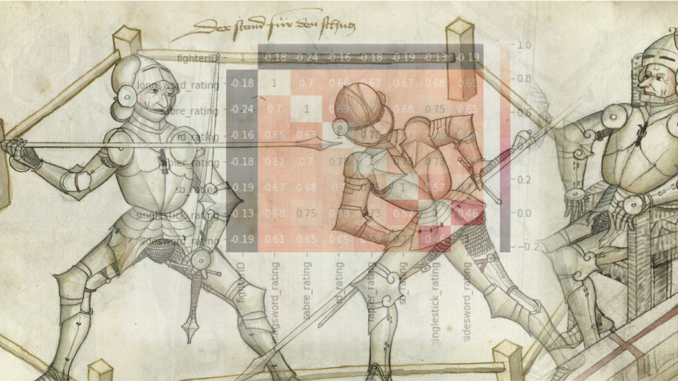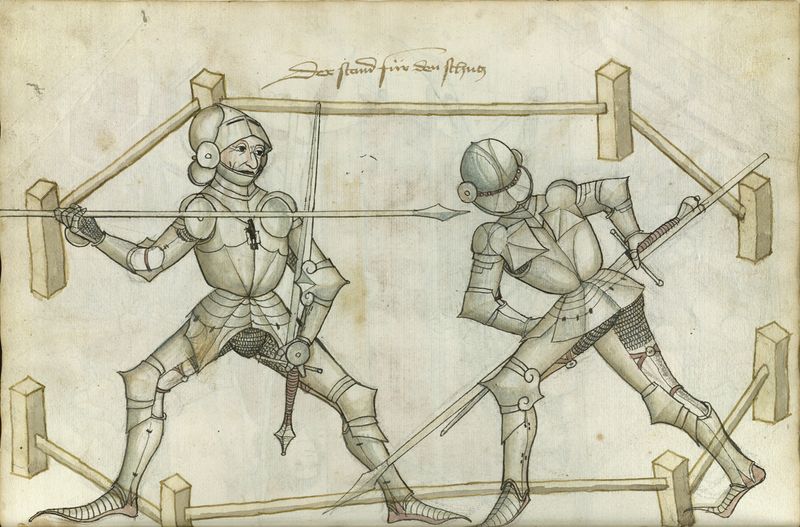
“You’re participating in every weapon? You’re a fighting machine.”
I usually hear something along these lines every time I go to an event because I do tend to sign up for every tournament offered. There are usually one or two other people that do the same, with many others signing up for half of the weapons rather than take on everything. But there are also plenty of people who will only sign up for one weapon at a tournament. Sometimes the limitation on weapons comes from a person’s school only teaching a small subset of weapons, and other times people like to claim that specializing in a weapon makes them better at that one thing. We’re here to find out if focusing on one weapon makes you better at that given weapon.
In Popular Sport
I tried looking up articles in academic journals to see if the claim of specialization in sports makes an individual better in that sport than someone that spans multiple sports. My Googling wasn’t able to turn up any articles that discussed this topic, so I had to think of other ways to investigate. I turned to the Olympics.
I looked at all the sports in the Olympics Games for the Summer 2020 and Winter 2022 years to see which athletes may have competed in more than one event. I considered athletes to be competing in more than one event if they competed in two or more events that were dissimilar. For example, someone competing in the 100m and 200m Freestyle swimming competitions would not be counted as two separate events, but someone competing in the 100m Freestyle and 100m Backstroke would count as two separate events. Sports that had overlap in athletes were swimming (8% of competitors competed in 2+ events), Diving (3%), Track and Field Jumping (3%), Alpine Skiing (16%), Cross Country Skiing (44%), Freestyle Skiing (6%), and Snowboarding (1%). Sports that had no overlap in athletes were Track and Field Throwing, Equestrian, Fencing, Karate, Skateboarding, Shooting, and Sailing.
From this, we can see that although there is some overlap in events for these top-level athletes, they do tend to specialize in just one event.
Sean chiming in. The subject of early/late sport specialization and Long Term Athlete Development was a pretty hot topic back when I was involved in sports admin. Without going down too deep a rabit hole, the general research consensus was that people put too much emphasis on specialization, out of proportion to actual evidence.
Evidence Acquisition:
PubMed and OVID were searched for English-language articles from 1990 to 2011 discussing sports specialization, expert athletes, or elite versus novice athletes, including original research articles, consensus opinions, and position statements.
Results:
For most sports, there is no evidence that intense training and specialization before puberty are necessary to achieve elite status. Risks of early sports specialization include higher rates of injury, increased psychological stress, and quitting sports at a young age. Sports specialization occurs along a continuum. Survey tools are being developed to identify where athletes fall along the spectrum of specialization.
Sports Specialization in Young Athletes, (Jeyanthi et al, 2013)
In The Sources
It’s all well and good to look at Olympic sports, but maybe we can find something a little closer to HEMA to see if there’s anything to be said about diversifying versus specializing. For this, I’m consulting Wiktenauer and their list of manuscripts. Of the manuscripts in Wiktenauer for which the weapons are detailed in the entry, 45 of them were dedicated to a single weapon whereas 81 cover at least two weapons. This may indicate that fencing masters who wrote source material saw a benefit in learning multiple weapons.

In Tournaments
Here’s where the STEM part comes in. I acquired data from HEMA Ratings regarding each fighter’s raw rating (not the weighted rating!) broken down by weapon type. I grouped fighters into categories of training solely one weapon versus fighters that train at least one other weapon. I’ve only identified people as “training a weapon” if they have 10 or more matches for the given weapon. A t-test was performed on the ratings of the two groups to check for statistical significance.
| Weapon | # Fighters Not Cross-Training | # Fighters Cross-Training | Average HEMA Rating (No Cross-Training) | HEMA Rating (Cross-Trains) | P-Value |
|---|---|---|---|---|---|
| Longsword | 2490 | 1241 | 1410 | 1524 | <.0001 |
| Rapier | 129 | 503 | 1447 | 1551 | <.0001 |
| Rapier and Dagger | 87 | 499 | 1415 | 1518 | <.0001 |
| Sabre | 219 | 685 | 1450 | 1526 | <.0001 |
| Sword and Buckler | 62 | 637 | 1447 | 1544 | .0006 |
| Singlestick | 67 | 185 | 1465 | 1558 | <.0001 |
| Sidesword | 26 | 149 | 1515 | 1581 | .1348 |
From this table, we can see that every single weapon has a higher HEMA Rating for fighters that train more than one weapon rather than exclusively one weapon. Only one weapon (Sidesword) does not have a statistically significant p-value on the difference, and this is likely because the number of practitioners of sidesword is small.

Which Weapons are Best to Cross-Train?
Based solely on the data, we can make certain claims about which weapons are best to cross-train to see a bump in your HEMA rating. I looked at individuals who trained a pair of weapons and compared them to individuals that did not train the pair. While all pairs saw an increase in rating over fighters that did not train the pair, some pairs saw a larger increase than others.
The table below shows which weapon pair provided the greatest boost in HEMA Rating. Using the first row as an example, the way to read this table is “For an increase in Longsword rating, train Rapier and Dagger for a 139-point increase.”
| To Increase | Cross-Train With | For Point Increase Of |
|---|---|---|
| Longsword | Rapier and Dagger | 139 |
| Rapier | Singlestick | 120 |
| Rapier and Dagger | Rapier | 113 |
| Sabre | Rapier | 123 |
| Sword and Buckler | Sidesword | 123 |
| Singlestick | Rapier | 117 |
| Sidesword | Longsword | 91 |
Conclusions
Everyone is going to train the way they feel will work best for them, but there is some pretty convincing evidence in the form of historical sources and tournament data to suggest that cross-training weapons is the way to go.

